November has arrived! Hopefully, I’ve crafted the perfect election dissociation round-up for you all (though plz vote if you’re in the U.S., etc.).
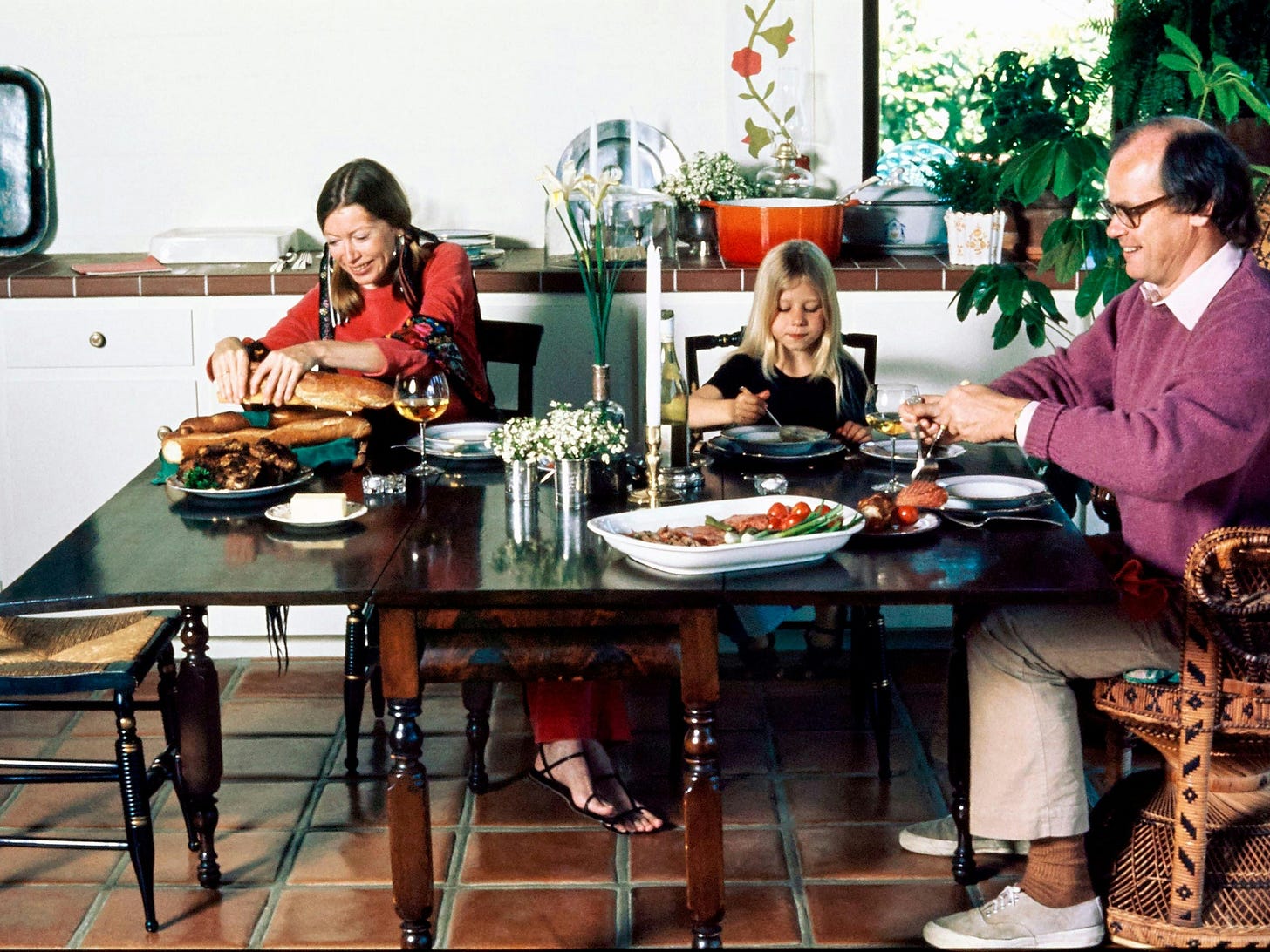
Let’s get into it:
November Book Selections
With Lili Anolik’s new book, Didion and Babitz (2024), publishing this month, I’ve oriented this month’s selections around these three writers. To reiterate a prior disclaimer, “I’ll be referring to Eve and Joan by their first names…because, to me, both women feel like old friends.”
With that order of business behind us, recommendations include:
Didion and Babitz by Lili Anolik (2024) — Obviously. I reviewed this new book, which publishes on 11.12, back in September after my friend, Ama (hi, Ama!), kindly gave me her extra galley. As a refresher, Didion and Babitz (2024) traces the careers of LA literary giants Joan Didion and Eve Babitz — and where they knotted into a pressure point at the height of the 1970s.
As I discuss in my review: “Anolik explores Eve and Joan’s equally potent, tonally distinctive iterations of artistry (‘Joan was an alchemist. The pain of life became the gold of literature once she ran it through her typewriter. Eve, on the other hand, was repelled by sadness, wanted nothing whatsoever to do with it.’). She holds a magnifying glass to their respective career paths, relationships with men (and, in Eve’s case, a few women, including Annie Leibovitz), and shared social circle, dubbed ‘the Franklin Avenue scene’ for Didion’s 7406 Franklin Avenue address, a nexus for the likes of Harrison Ford, Michelle Phillips, and Susanna Moore from 1966 through 1971. The book unravels the notion of the ‘woman artist’ through the dual lenses of Eve and Joan, dissects the factors — whether familiar, romantic, or societal — that shape form and fortune.”
You can preorder the book here. But while you wait for its publication, check out…
Hollywood’s Eve by Lili Anolik (2019) — In 1997, Eve Babitz caught herself on fire. In her 2019 essay on the experience, the final piece she would write, Eve explains: “Here’s what you would have witnessed if you happened to be standing outside the Raymond restaurant in Pasadena on April 13, 1997: A ’68 VW Bug comes to a stop, a woman flies out, skirt aflame. She drops to the ground by the side of the road, rolls on the grass, setting the grass along the side of the road on fire, and then against the green bushes, setting those on fire too. ‘Oh no, oh no!’ is all she can manage. That woman was me.”
After that incident, Eve retreated from public life. Her Huntington’s Disease, the condition that killed her father in 1982, worsened, ate away at her brain, as she sequestered herself in her Gardner Street apartment. Until Vanity Fair contributor-turned-author Lili Anolik drew her out.
While Joan Didion has held an inescapable place in the literary lexicon since her famed exposé on Haight-Ashbury hippies, Eve Babitz only reemerged and saw her star ascend in the past decade. Learn more about her life — and get acquainted with the sparkle that shapes Anolik’s style — in the lead-up to Didion and Babitz’s publication with this biography.
Hollywood’s Eve stems from hour after hour of conversation, story after story pulled out of Eve by Anolik, comprising a full picture of a once-forgotten artist. As I write in my review of Didion and Babitz: “Anolik profiles Eve for Vanity Fair in 2014, then develops a full-blown biography, Hollywood’s Eve (2019), which Didion disciple Bret Easton Ellis characterizes as: ‘A gossipy and wonderful introduction to not only Eve Babitz and her somewhat tragic life…but the social history of Los Angeles in the 1960s and 1970s—[a] jeweled piece of pop culture.’ Her books get reissued, and she becomes a beloved figure among a certain kind of extroverted intellectualista, ‘a totemic figure, particularly to women in the arts, the ones who understand from experience what she went through,’ per Anolik…You could argue that Anolik embodies Eve’s eleventh hour embrace of a patron, but, really, she filled the role of fan, a well-connected one who offered Eve a microphone.”
Eve’s Hollywood by Eve Babitz (1974) — Eve’s Hollywood (1974), the lead-up to its publication, connects the narrative threads that comprise Didion and Babitz (2024). Eve’s debut collection brims with 45 vignettes — on subjects ranging from the most popular girl at Hollywood High to what Cary Grant looks like up close — and an eight-page dedication that includes a nod “to the Didion-Dunnes, for having to be who I’m not.”
While Slow Days, Fast Company (1977) marks my favorite of Eve’s work, her stylistic and conceptual zenith, Eve’s Hollywood serves as the ultimate immersion into her world, that unabashed embrace of Los Angeles laced with incognito intellectualism (“Also, I believe that places should be capitalized…It sounds more adventurous to go West than to go west. Since this is my book and since the advent of James Joyce, why don’t we let me have my way? It’s such a small thing, and just think, I could be James Joyce writing in latin all the time and stuff.”).
The Book of Common Prayer by Joan Didion (1977) — I have not read Joan Didion’s third novel, though my friend Joanna (hi, Joanna!) ranks it as her favorite. The Book of Common Prayer (1977) stems from Joan’s intense fascination with Patty Hearst, granddaughter of publishing magnate William Randolph Hearst and a fellow daughter of California, who became indoctrinated into the Symbionese Liberation Army after her 1974 kidnapping. Joan discusses Hearst at length in South and West (2017), a nonfiction follow-up to the blend of personal and political that shapes The Book of Common Prayer. After reading Didion and Babitz, my interest in the novel has piqued. As I write in my Didion and Babitz review:
Anolik unearths Noel Parmentel Jr. as Joan’s first great love. Her initial literary advocate, Parmentel pushes for the publication of her debut novel, Run River (1963). As writer and one-time Babitz boyfriend Dan Wakefield explains to Anolik: “‘Noel’s the one who told me about Joan because Noel was telling everyone about Joan…He was like a super-agent. He’d just go up to people and make the case for Joan until they listened. He really made it happen for her.’”
Parmentel makes “it happen” for Joan not only professionally, but also romantically. He ultimately introduces her to John Gregory Dunne, a man who offers the kind of stability he lacks, as well as a heightened version of the support to which Joan had grown accustomed (Per Parmentel: “‘He’d be at the breakfast table every morning, something I’d never be. And he’d edit her line by line.’”). As Anolik explains: “Dunne was an acolyte of Parmentel’s and therefore understood the deal, all the ways in which Joan required cosseting and coddling. He could be counted on to take over as her custodian since he’d been de facto groomed for the job.” Parmentel remains a close friend of the Didion-Dunnes until Joan excises him in her third novel, The Book of Common Prayer (1977).
Per Anolik, the novel provides a fictionalized peek into her marriage to Dunne and her feelings for Parmentel. The novel focuses on Charlotte Douglas, a woman who “suffers not only the loss of her daughter (whom she never sees again after the airplane hijacking), but the loss of her former husband (with whom she has desperately eloped, or reeloped) and the loss of an infant born prematurely, after an unwise pregnancy,” per Joyce Carol Oates’s 1977 review for The New York Times. It teases out an odd triangle, unveiling truths that Joan’s former lover found scathing enough to fizzle their friendship. As detailed in Vulture, “her basing the character Warren Bogart on him was, he felt, a hostile act, and he had a lawyer send her a letter.”
The Friday Afternoon Club by Griffin Dunne (2024) — Throughout Didion and Babitz (2024), Anolik constructs a narrative freed from the constraints of time, but bookends the 1970s with two brutal murders that shaped the mood of Los Angeles. First, those of Sharon Tate and her houseguests at the hands of the Manson family in the early morning hours of August 9, 1969. Second, that of Dominique Dunne, Poltergeist (1982) actress and niece of Joan Didion, on October 30, 1982 by her abusive boyfriend, Ma Maison chef John Sweeney.
The second half of Griffin Dunne’s new family memoir, The Friday Afternoon Club (2024), details the death of his sister, its reverberation through the Didion-Dunne family. As I explain in the June Book Review:
In his acknowledgments, Dunne discusses his struggle to find a title for the book, while explaining that he always intended “A Family Memoir” to — rightly — serve as its subtitle. Per The Guardian: “Dunne is merely the latest in a long line of raconteurs and characters. There was the great-great-uncle who died in flagrante with his mistress on a yacht — his body was dressed in pyjamas and moved back to his hotel room on dry land, where his wife was told he had died in his sleep. There was the great-great-aunt who wed her lover just in time for them to attend her previous husband’s funeral as a married couple. But they are just the warm-up act for his immediate family: his father Dominick, his mother Ellen, or Lenny, and his siblings Alex and Dominique. The Friday Afternoon Club is named after the informal gatherings of actors Dominique would host each week.” The book captures the spirit of a family more than the story of a person, with Dominique — known for her bone dry sense of humor and penchant for bringing home scores of stray animals — at its emotional center.
While Part One of The Friday Afternoon Club recounts Dunne’s winding road toward his starring role in Martin Scorsese’s After Hours (1985), with the narrative threads of his family’s stories interwoven throughout it, Part Two centers on Dominique’s murder trial. Her killer, ex-boyfriend and Ma Maison sous chef John Sweeney, ultimately served only three years in prison for strangling her to death after the judge bungled the trial process, pushed the jury out of the room during key testimonials that proved Sweeney’s track record of violence against women. Dunne’s father — a closeted former film and TV executive who produced William Friedkin’s The Boys in the Band (1970), named his miniature poodles after Oscar Wilde and Lord Alfred Douglas, and, to give you a full vibe check, recently had Nathan Lane tapped to play him in an upcoming Ryan Murphy series — experienced a fall from grace years earlier. After riding out his Hollywood banishment in the Oregon wilderness, he found a second career as a successful crime writer, first detailing the gross mishandling of his daughter’s trial, then famous cases from The Menendez Brothers to O.J. Simpson. The Friday Afternoon Club holds Dominique’s murder at its center, positions it as the dark mark that shapes the Dunne family for better and for worse in the years following her 1982 death.
In my review of Sloane Crosley’s new memoir, Grief Is for People (2024), I discuss how “Crosley decries authors who write ‘not ‘I miss this person,’ but ‘Miss this person as I do,’’ as ‘too much laundering of empathy.’” Dunne, like Crosley, avoids “laundering empathy” by breathing life into his now-deceased family, capturing the specific texture of their quirks. In The Friday Afternoon Club’s acknowledgments, he writes: “Alex is the only surviving member of my immediate family, but if it’s possible to acknowledge the dead, I want to thank my parents, Dominique, John, Joan, and Quintana for letting me bring them to life in my office each day as I wrote. Their presence was so vivid that the pictures of them on my corkboard actually shimmered with light. When my work on the book was complete, I mourned their losses all over again.”
Upcoming Content to Consume
Metrograph: Shadow of a Doubt (1943) (Dates: 11.1-11.4) — This creepy Hitchcock classic, among my favorites, plays at Metrograph this weekend as part of the theater’s My Crazy Uncle (or Aunt) series (lol). As I write in my review of the film:
Wow, what an absolute banger. Hitchcock cited Shadow of a Doubt (1943), which holds a 100% score on Rotten Tomatoes, as his favorite of his films for a reason. Genuinely, five stars, no notes.
This noir centers on the Newtons, a “typical American family” residing in Santa Rosa, California. Eldest daughter Charlotte, aka: Charlie (played by Theresa Wright), bored with the monotony of their existence, resolves to write her favorite uncle and namesake, Charlie (played by Joseph Cotten), to come stay with them for a bit. Before she can even dispatch her telegram, Uncle Charlie arrives at the Newtons’ house for an uncannily timed visit.
I want to stay especially mindful of spoilers for Shadow of a Doubt because so much of the viewing pleasure stems from its twists and turns. What I will say is that this early-stage Hitchcock, as I see it, builds suspense primarily through its structure. Uncle Charlie gives shady, predatory, and borderline incest-y vibes from the beginning, but the true nature of his character remains hidden for the first quarter of the film. This narrative pacing simulates the paranoia experienced by his niece for the audience, creating a particularly potent kinship between character and viewer as the story reveals itself in full.
Run, don’t walk!!
Film Forum: Bruce Weber’s Let’s Get Lost (1988) (Dates: 11.1-11.7) — A new 4K restoration of Bruce Weber’s Chet Baker documentary opens at Film Forum this month!
As the site puts it: “A James Dean look alike pretty boy whose jazz trumpeting and melancholy epitomized ’50s cool, Chet Baker had become, when famed photographer Bruce Weber finally caught up with him after three decades of fandom, an alcoholic and a junkie, whose petulantly angelic looks peeping out from behind a gaunt, valleyed and crevassed face could have starred for Sam Peckinpah…Shifting back and forth from past to present, from Baker’s breakout performance and his controversial ‘doomed youth’ years, to his poignant late-career decline and struggles with addiction, Let’s Get Lost (1988) forms a dreamy, improvisational quality offering a rare, behind-the-scenes glimpse into the decadent life of jazz music’s original bad-boy.”
Academy Museum of Motion Pictures: Gentlemen Prefer Blondes (1953) (Date: 11.2) — For the LA-based subscribers! Tomorrow afternoon, the Academy Museum will screen Marilyn Monroe and Jane Russell’s show-stopping screwball comedy, which follows the romantic misadventures of besties and showgirls Lorelei Lee (played by Monroe) and Dorothy Shaw (played by Russell) as they travel from the U.S. to France.
The screening comes in tandem with the museum’s Color in Motion exhibition, which, per the site, “investigates the role of color in film, from the scientific and technological advancements that made it possible, to its emotional and psychological impact on viewers, to the ways filmmakers use color as a storytelling tool…[It] takes an immersive and innovative approach to understanding cinematic color through six unique galleries, each focusing on a different aspect of film color.” This Instagram reel from the Academy offers a fun peek into how the show might present pink.
BAM: I Guess It Was My Destiny To Live So Long (Dates: 11.4-11.8) — In tandem with Election Week, poet and essayist Hanif Abdurraqib — whose essay collection, A Little Devil in America: In Praise of Black Performance (2021), I recommended back in June — will curate four nights celebrating the work of poet and activist June Jordan at BAM.
Per the Poetry Foundation: “Born in Harlem in 1936, June Jordan was a prolific writer, a tireless advocate, and a poet of both immediacy and intellect. She engaged the politics of her era in everything from journalism to librettos to children’s literature. Through her clear, inviting lines of poetry, she was always ready to engage with the world and the individuals who live in it. Her agile, fearless poems — full of eros and anger, humor and humility — are grounded in the experience of being a queer black woman in America.” Jordan briefly attended Barnard College before dropping out, disillusioned with the school’s predominantly white, male curriculum. She went on to publish 27 books in her lifetime and teach at universities including Yale, Sarah Lawrence, and UC Berkeley.
This upcoming string of events will “celebrate poetry’s power of possibility, bringing people together across lines of race, class, gender, age, and geography…[to] refract the political present through the prism of poetic expression,” as the site describes. You can learn more here.
McNally Jackson Seaport: Dangerous Women: Self-Destruction and Self-Creation in the work of Dorothy Parker, Djuna Barnes, and Caroline Blackwood (Date: 11.7) — This event from McNally Editions, the “independent publisher devoted to rediscovering books from off the beaten path,” will explore three of its most provocative titles: Dorothy Parker’s Constant Reader (1927-1928), Djuna Barnes’s I Am Alien to Life (1923-1958), and Caroline Blackwood’s The Stepdaughter (1976), the latter of which I discuss in the September Book Review.
The panel will include authors Sloane Crosley (whose new memoir, Grief Is for People (2024), I unpack in the May Book Review), Merve Emre, and Heidi Julavits, with drinks to toast to three years of McNally Editions following the talk. You can reserve a seat here!
Albertine’s 10th Anniversary Celebration (Dates: 11.14-11.17) — The Upper East Side’s favorite French bookstore celebrates ten years this month! Three days of programming, “a series of high-profile conversations and festive events featuring global literary stars,” will mark the occasion, as Albertine describes.
My personal favorite pick from the programming comes in the form of a session titled Madame Bovary’s Carriage: The Art of Seduction in Literature, presented in partnership with The New York Review of Books.
You can check out the full schedule and RSVP as you see fit here.
Bogart: Life Comes in Flashes (Opening Date: 11.15) — A new documentary about my Golden Age Hollywood celebrity crush Humphrey Bogart opens this month. Told entirely in his own words and blessed by his estate, the film threads together Bogart’s legacy through the lens of his relationships with the five women who had the biggest impact on his life — his mother and four wives, including my girl Lauren Bacall. It also will feature previously unseen archives, letters, and interviews.
Details around screenings remain sparse so far, but you can monitor for showtimes here as they become available.
Film Forum’s Once More with Ealing Series (Dates: 11.15-11.26) — This month, Film Forum will debut a series dedicated to the “classic comedies, film noir, and horror” that stemmed from London’s famed Ealing Studios.
Per the site: “Producer Michael Balcon (discoverer of Hitchcock and grandfather of Daniel Day-Lewis) created, through the family atmosphere he fostered at his suburban London Ealing Studios, a body of work as distinctive as any classic genre: The Ealing Comedy, featuring the farcically ingenious plots of writer T.E.B. Clark, the wry direction of Charles Crichton, Robert Hamer, and Alexander Mackendrick (who’d go on to make the rather un-Ealing Sweet Smell of Success), and a world-renowned stock company of eccentrics including Margaret Rutherford, Stanley Holloway, Alastair Sim, Joan Greenwood, and especially Alec Guinness, who stars in five films (in twelve different roles) in the series. But comedy was only a small part of an output that spanned everything from Dickens adaptations and war movies to classic horror and film noir.”
The line-up includes 4K restorations of comedies including The Lavender Hill Mob (1951), which I reviewed in May, The Man in the White Suit (1951), and The Ladykillers (1955); police procedurals The Blue Lamp (1950) and Pool of London (1951); noir classic It Always Rains on Sunday (1947); horror film Dead of Night (1945); and more.
You can check out showtimes and book tickets here!
Books Are Magic: Lili Anolik in Conversation with Emma Straub (Date: 11.18) — Lili Anolik will discuss Didion and Babitz (2024) in conversation with author and Books Are Magic owner Emma Straub at the store’s Montague Street location in Brooklyn Heights starting at 7:00 PM on 11.18.
You can reserve tickets here!
The Center for Fiction: The Evidence of Things Unseen: Baldwin, Faith, and Fiction (Date: 11.19) — Per The Center for Fiction: “Yahdon Israel, founder of The Literaryswag Book Club and Senior Editor at Simon & Schuster, and Robert Jones, Jr. (formerly known as “Son of Baldwin”), the New York Times bestselling author of The Prophets, [will hold]…a dynamic conversation about James Baldwin’s fiction. The pair will discuss the powerful link between Baldwin’s faith and artistic imagination that enabled him to create a language of possibility on the page — and how we can all work to apply this in our own lives.”
You can reserve tickets here!
Syndicated BK: The Graduate (1967) (Date: 11.24) — I have no idea why Syndicated is screening The Graduate (1967) in November, but I’m not upset about it. The Mike Nichols classic, one of my all-time favorite films, stars Dustin Hoffman as 21-year-old Benjamin Braddock, a recent college graduate with no defined sense of his future who embarks on an affair with an older married woman, Mrs. Robinson (played by Ann Bancroft), in a perfect portrait of postgrad listlessness.
Miscellaneous Musings
Dalí: Disruption and Devotion — Last month, I had the pleasure of seeing Dalí: Disruption and Devotion at the Museum of Fine Arts, Boston. The exhibition juxtaposes selections from Salvador Dalí’s body of work, on loan from The Dalí Museum in St. Petersburg, Florida, with pieces that inspired his artistic evolution. The comparative works span geographies and eras, while all stemming from the MFA’s permanent collection. This curatorial choice underscores the depth of Dalí’s artistry, revealing him as a student of Diego Velázquez, Francisco Goya, Pieter Bruegel the Elder, Jan van der Heyden, Albrecht Dürer, El Greco, and more.
Exhibitions rooted in a museum’s permanent collection, from my perspective, often either lack depth or feel like watching a square peg get jammed into a round hole. Dalí: Disruption and Devotion, however, accentuates the MFA’s holdings through the prism of the ultimate celebrity artist — and reframes Dalí’s artistic depth through the context of the museum’s collection, resulting in a genuinely bespoke experience for museum-goers. As Murray Whyte puts it in his review for The Boston Globe: “Through it all, the exhibition anchors Dalí in European art history and prompts fresh epiphanies that plunge below the superficialities of fame.”
Dalí: Disruption and Devotion runs through the end of this month if you happen to be in the Boston area. You can learn more here.
New Elif Batuman Novel Dropping — Elif Batuman, author of The Idiot (2017) and Either/Or (2022), recently announced her third novel. Like its predecessors, the upcoming book will focus on now-Harvard graduate Selin Karadağ, a semi-autobiographical avatar for Batuman. It will drop into turn-of-the-millennium San Francisco, where Selin has taken a year off from grad school to focus on writing her first-ever novel.
For hardcore fans: Batuman has announced plans to unveil a 400-word passage from the upcoming novel for paid subscribers on her Substack. You can learn more here.
Bethany Joy Lenz on Call Her Daddy — If you’ve been here for a minute or you know me IRL, you know I love a teen drama, and One Tree Hill (2003-2012) is no exception. Needless to say, I ate up Bethany Joy Lenz’s episode of Call Her Daddy detailing her time in a religious cult. I absolutely will be reading — or at least listening to the audio version of — her new book, Dinner with Vampires (2024).
Supplemental Reading
As always, don’t forget to use archive.ph if you can’t access these pieces or any of the ones throughout my Substack!
The Atlantic: The Man Who’s Sure That Harris Will Win
The New York Times: The Culture Was Always Playing Catch-Up With Gary Indiana
Town & Country: How Dominick Dunne Invented the Way We Read About the Rich
Vanity Fair: Joan Didion and Eve Babitz Shared an Unlikely, Uneasy Friendship — One That Shaped Their Worlds and Work Forever
Rolling Stone: How Patty Hearst Inspired Joan Didion to Go Back Home to California
Social Media Round-Up
A new section aggregating tweets, TikToks, Notes, etc. that made me laugh in the past month (including one of my own that I’m still laughing at, sorry):
Cocktail of the Month
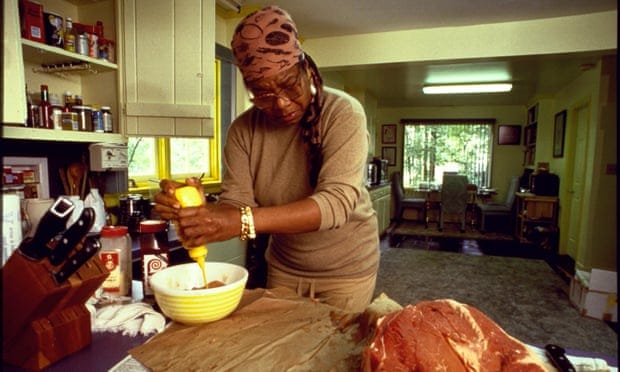
Lest we forget it’s Thanksgiving this month. Pop on the parade and enhance your dinner prep with…
On a small plate, combine two tablespoons of sugar with one tablespoon of ground cinnamon. Dip champagne flutes in water to wet their rims, then dip each one into the cinnamon mixture.
Fill the flutes a quarter of the way with apple cider, then top with champagne and enjoy!
That’s all for now! I will, of course, get into Brandon Taylor’s review of Intermezzo (2024) at some point, but I need to actually read past the first 20 pages of Intermezzo first. But before that, stay tuned for my review of Michael W. Clune’s memoir, White Out: The Secret Life of Heroin (2013), in the coming days.
xo,
Najet





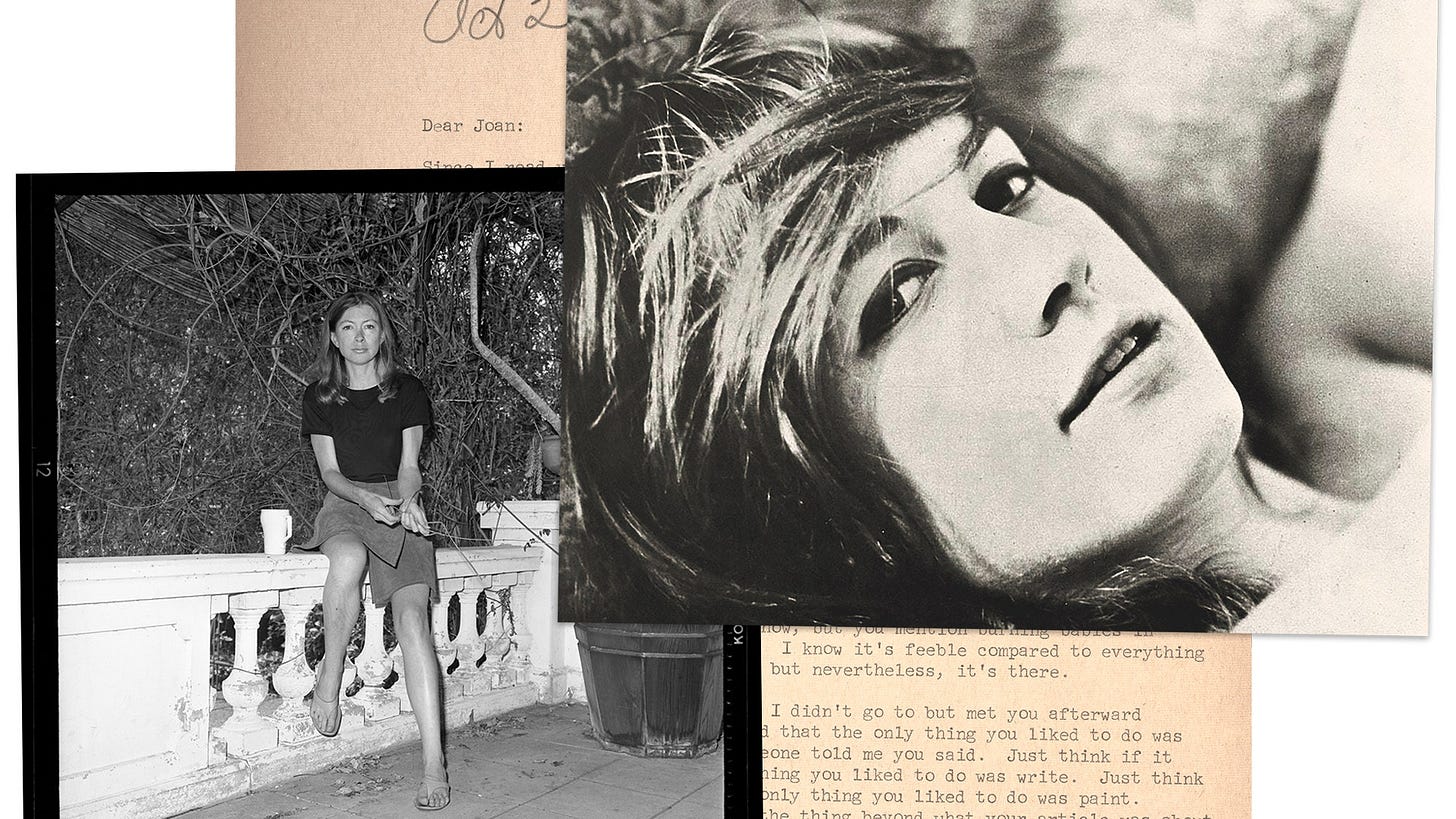



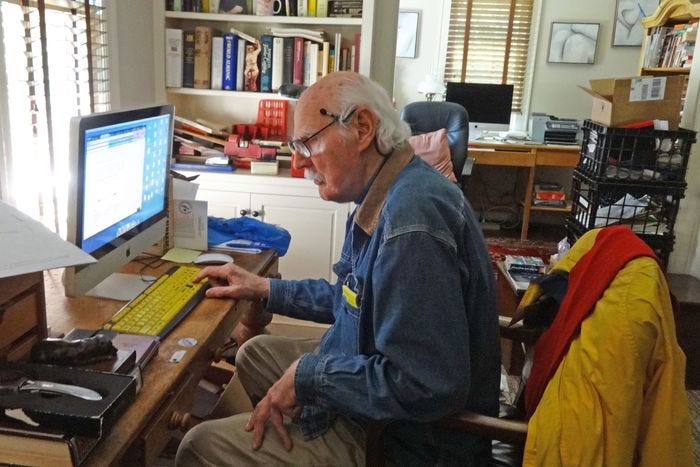
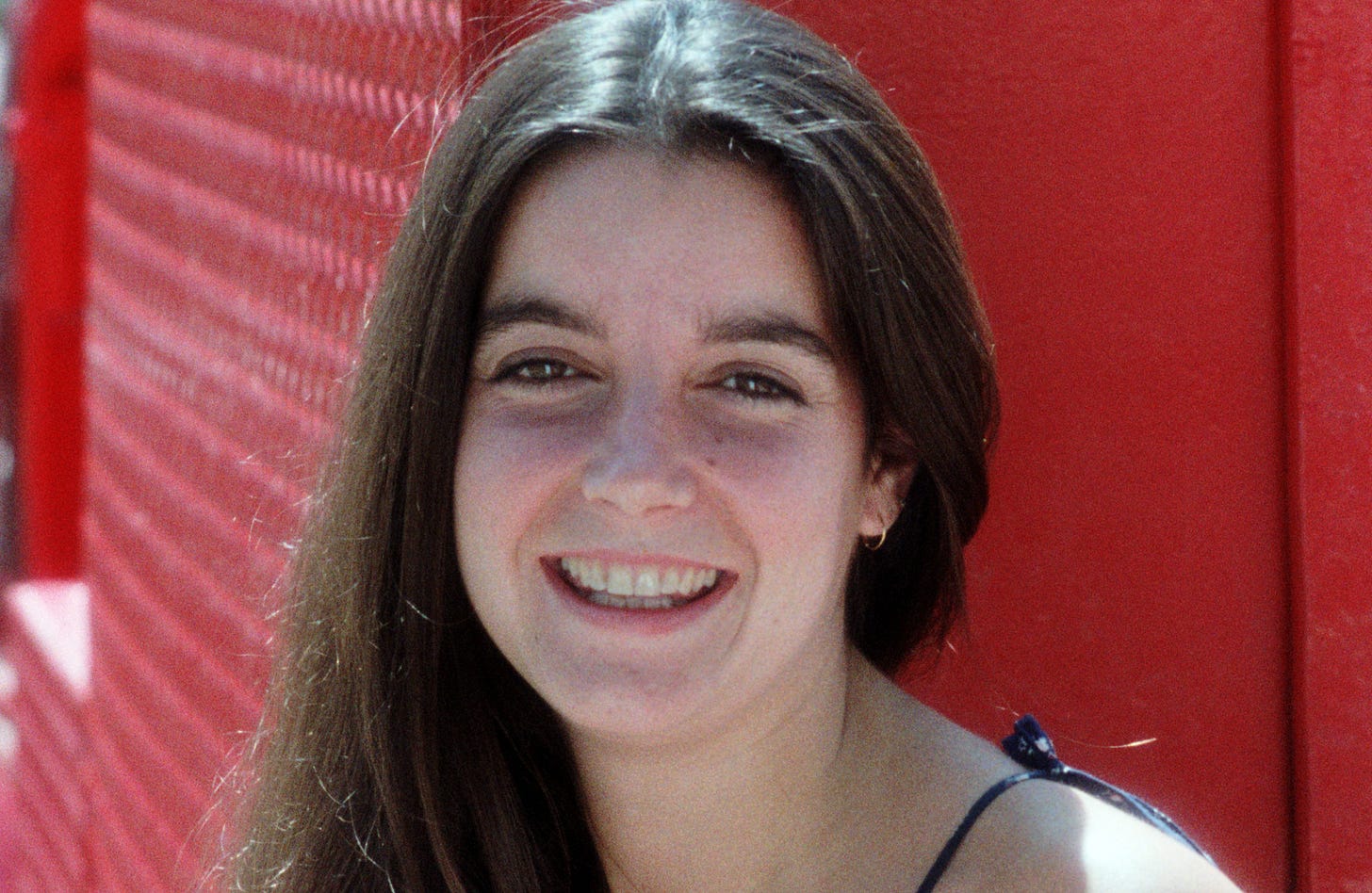



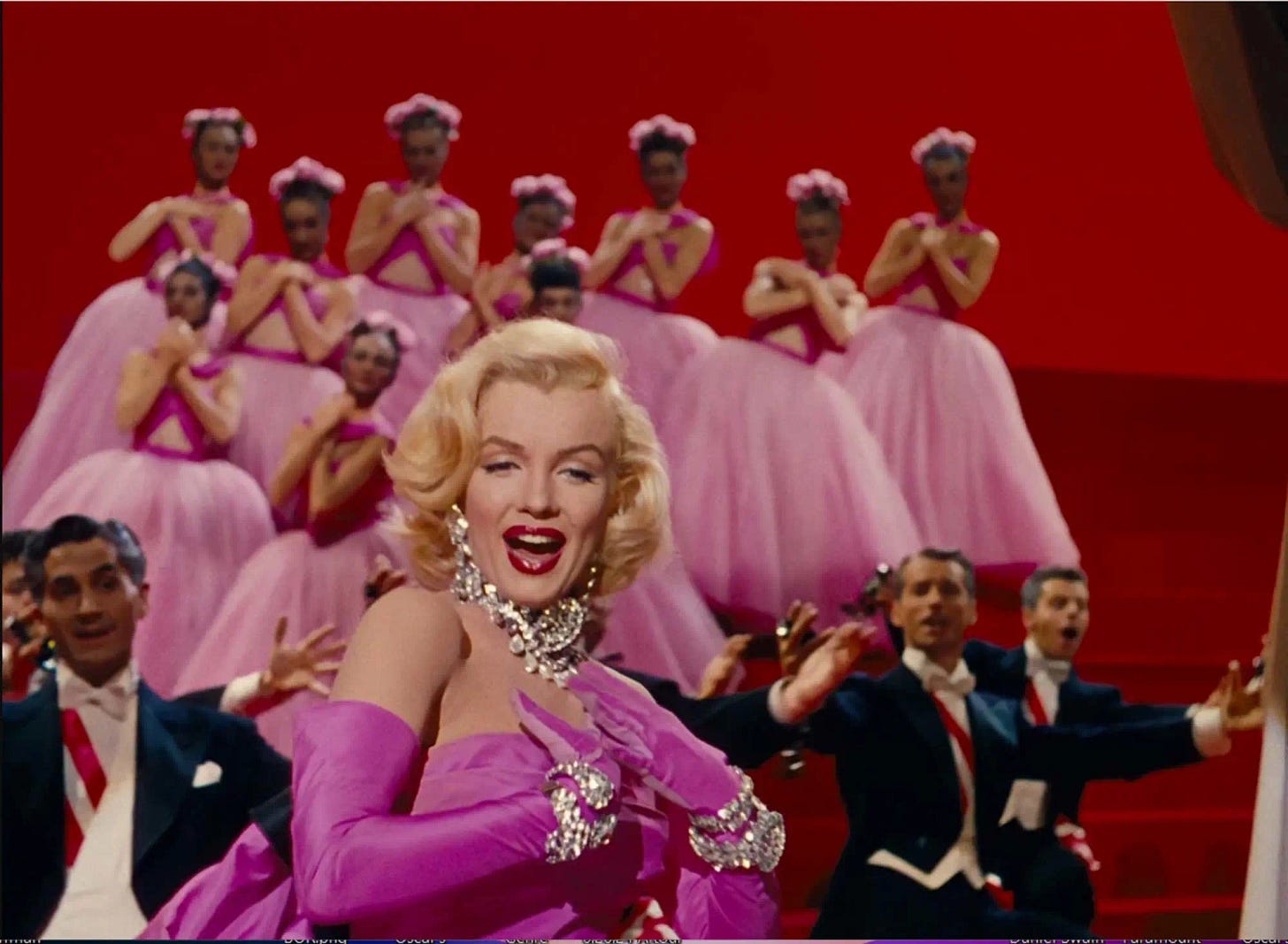
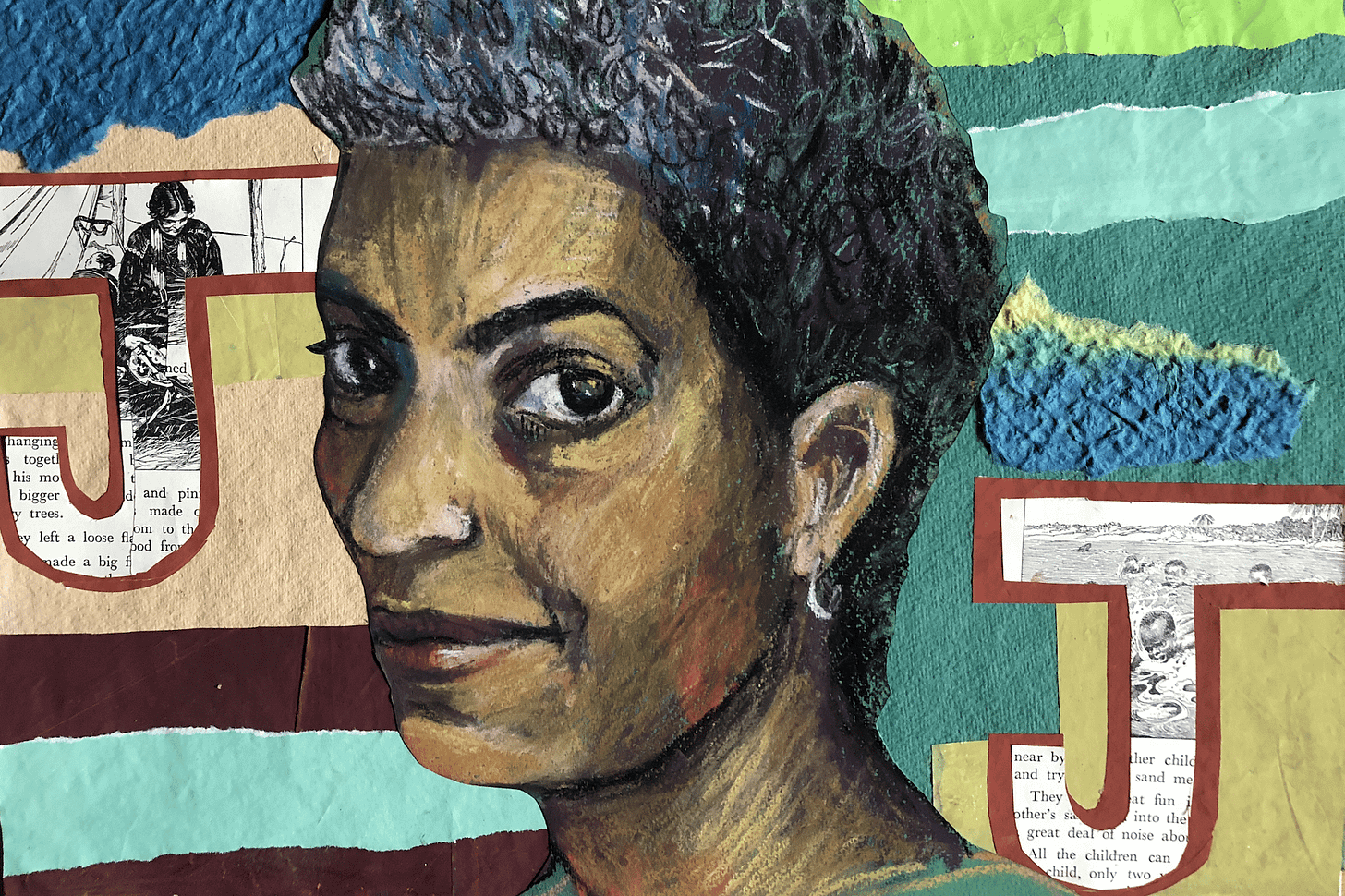

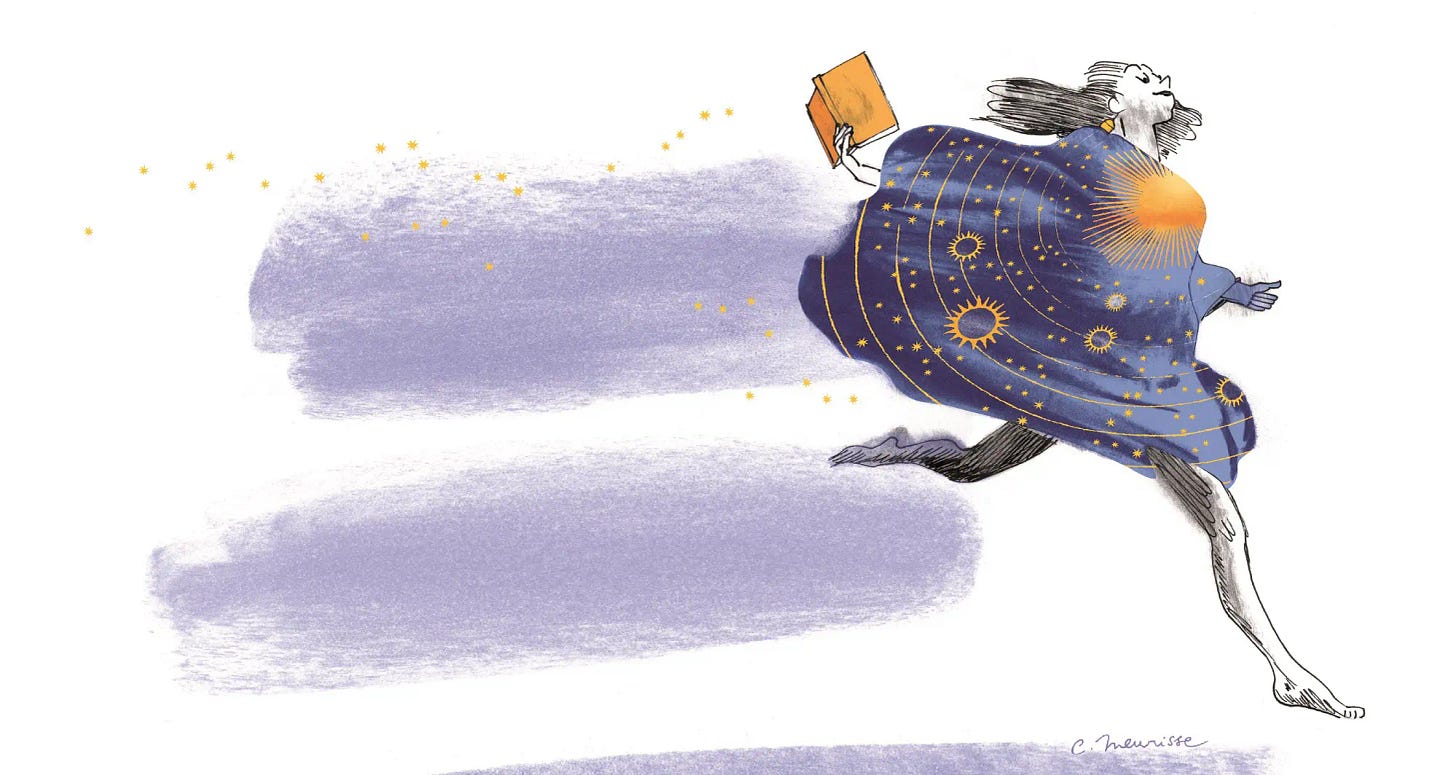
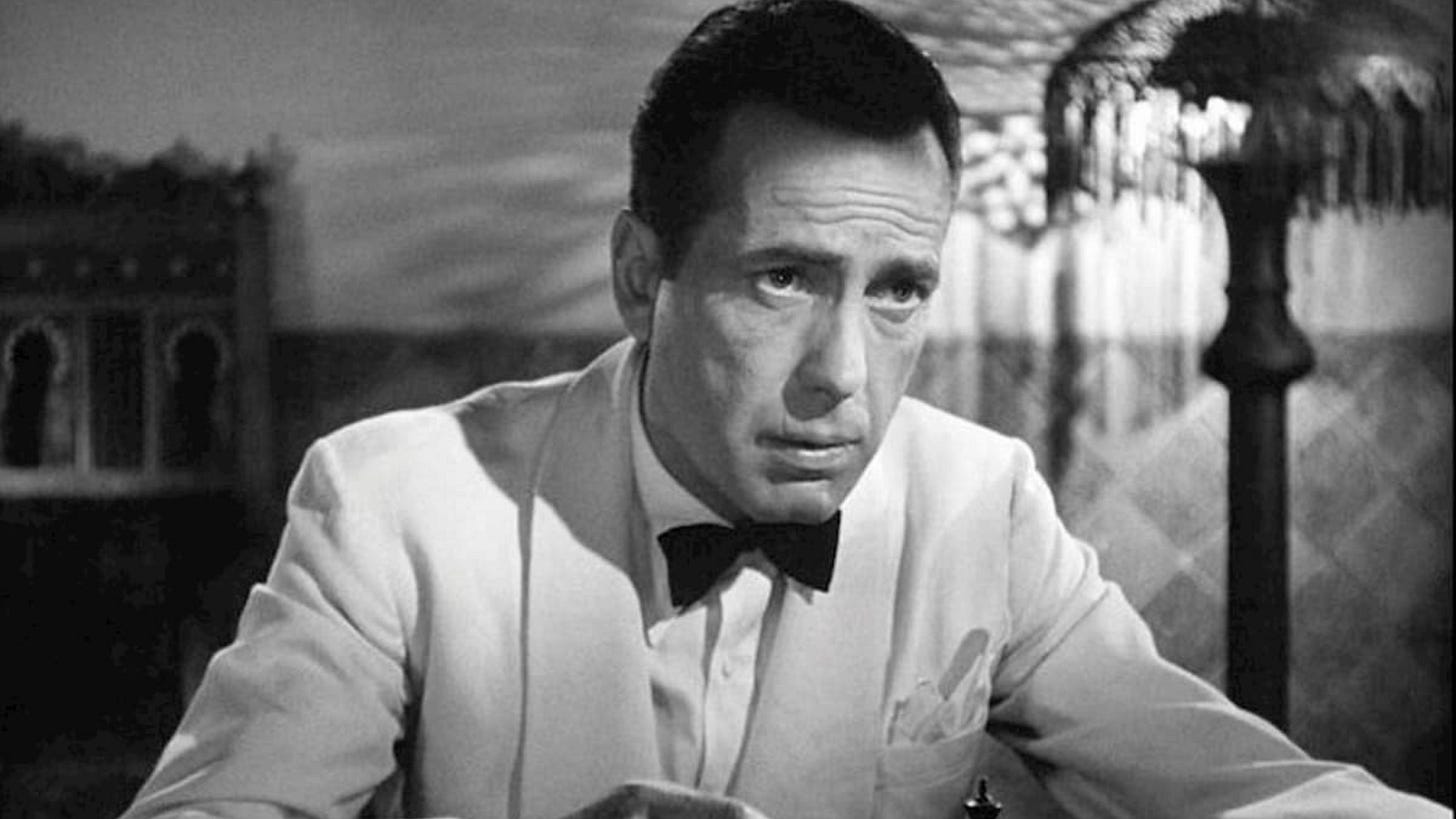
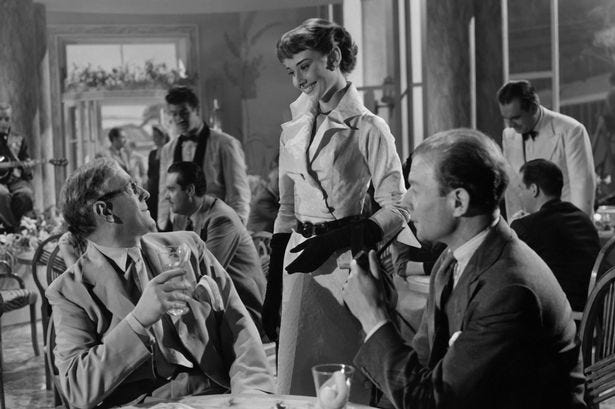
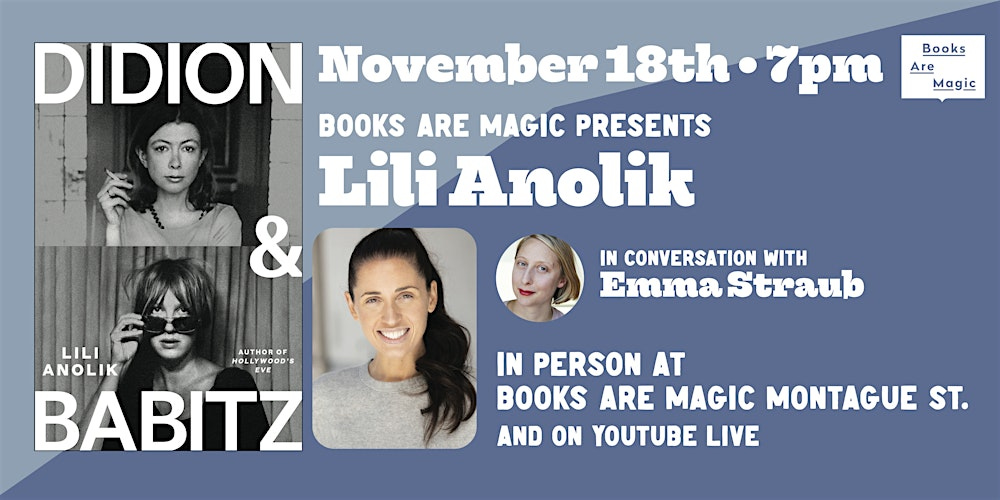

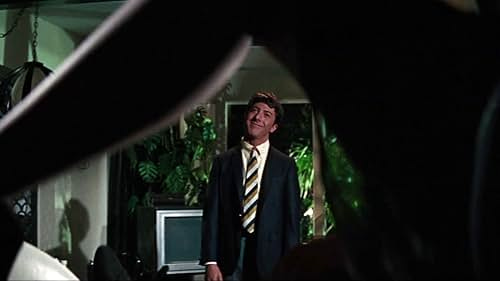
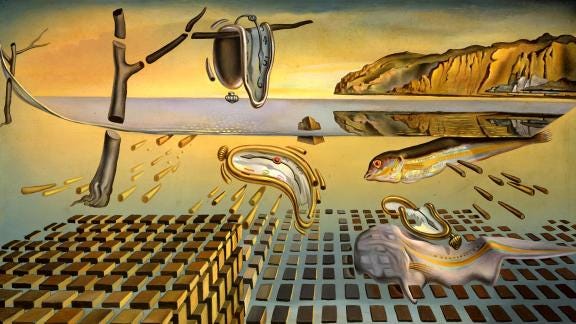
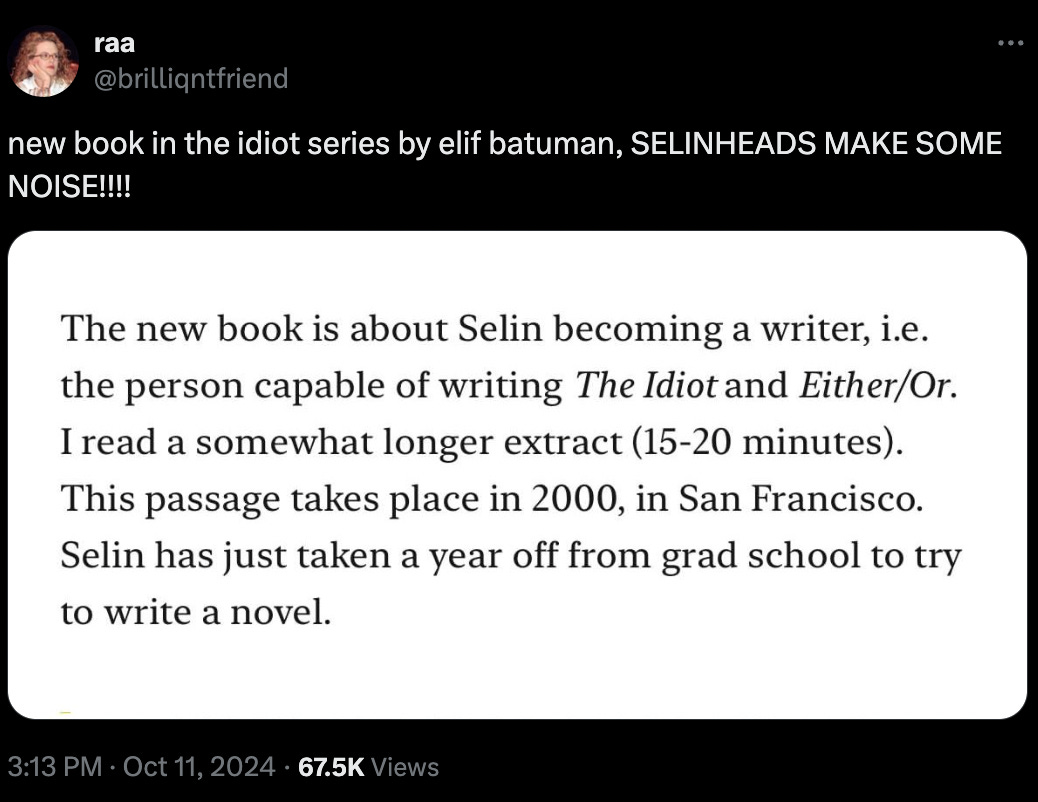


This duo